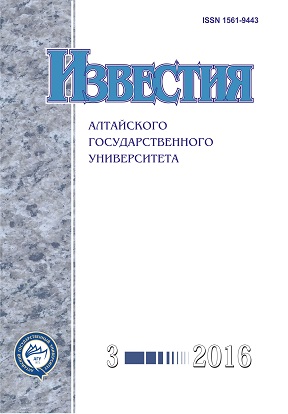The Ideal of Elite in the Political Law Doctrine of Eurasianism
Abstract
The article discusses a question of the theory of state and law such as elitist character of the state doctrine. The disclosure is made of the concept “the ruling selection” in the ideocratic theory of state in the historical and juridical doctrine of eurasianism. The analysis is made of the key signs of the leading group as inevitably inherent to any state formation and its functional purpose in the ideocratic state. The distinction is carried out of the concepts of the ruling group and state activists. The description is given to three main ways of the formation of the ruling group: aristocratic, democratic and ideocratic. The authors critically analyze them in terms of relevance in modern conditions of development of the democratic states. A special emphasis is given to the possibility of existence of state activists as a part of the ruling group which is involved in management and administration at supra-class, above party and supra-national levels. The need of spiritual unity — the unity of culture and worldview of the ruling selection — is set and discussed. The article considers the possibility of legal regulation of activity of the leading group and state activists in terms of eurasian approach of understanding of legal acts.DOI 10.14258/izvasu(2016)3-05
Downloads
Metrics
References
Дугин А.Г. Евразийство как политическая философия // Цивилизация и человек. - 2012. - № 4.
Иванов А.В., Попков Ю.В., Тюгашев Е.А., Шишин М.Ю. Евразийство: Ключевые идеи, ценности, политические приоритеты. - Барнаул, 2007.
Палкин А.Г. Понятие «правящий отбор» в идеократической концепции государства евразийцев // Известия Оренбургского государственного аграрного университета. - 2015. - № 3.
Marlene Laruelle. Russian Eurasianism: An Ideology of Empire. - Baltimore, 2008.
Коалиция и отбор // Евразийская хроника. - Прага, 1926. - Вып. 3.
Чанышев А.Н. Курс лекций по древней философии. - М., 1981.
Алексеев Н.Н. Теоретическое государствоведение // Русский народ и государство. - М., 1998.
Савицкий П.Н. Евразийство как исторический замысел // Континент Евразия. - М., 1997.
Трубецкой Н.С. О государственном строе и форме правления // Наследие Чингисхана. - М., 2000.
Алексеев Н.Н. Организация ведущего слоя // Русский народ и государство. - М., 1998.
Савицкий П.Н. Подданство идеи // Континент Евразия. - М., 1997.
Плоткин В.А. Роль православия в формировании российской национальной идеи // Известия Пензенского государственного педагогического университета им. В.Г. Белинского. - 2012. - № 27.
Табель о рангах // Российское законодательство X-XX вв. : в 9 т. - М., 1986. - Т. 4.
Izvestiya of Altai State University is a golden publisher, as we allow self-archiving, but most importantly we are fully transparent about your rights.
Authors may present and discuss their findings ahead of publication: at biological or scientific conferences, on preprint servers, in public databases, and in blogs, wikis, tweets, and other informal communication channels.
Izvestiya of Altai State University allows authors to deposit manuscripts (currently under review or those for intended submission to Izvestiya of Altai State University) in non-commercial, pre-print servers such as ArXiv.
Authors who publish with this journal agree to the following terms:
- Authors retain copyright and grant the journal right of first publication with the work simultaneously licensed under a Creative Commons Attribution License (CC BY 4.0) that allows others to share the work with an acknowledgement of the work's authorship and initial publication in this journal.
- Authors are able to enter into separate, additional contractual arrangements for the non-exclusive distribution of the journal's published version of the work (e.g., post it to an institutional repository or publish it in a book), with an acknowledgement of its initial publication in this journal.
- Authors are permitted and encouraged to post their work online (e.g., in institutional repositories or on their website) prior to and during the submission process, as it can lead to productive exchanges, as well as earlier and greater citation of published work (See The Effect of Open Access).








